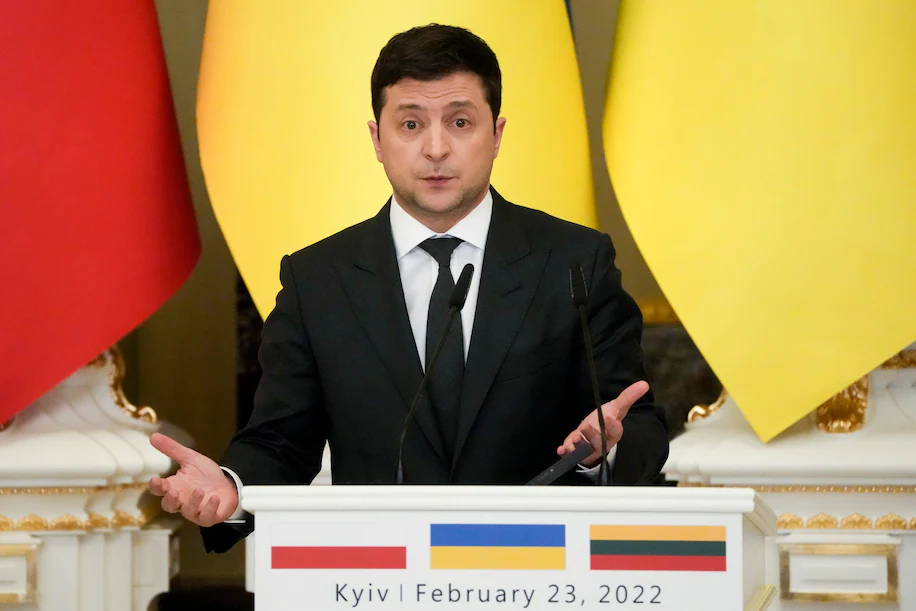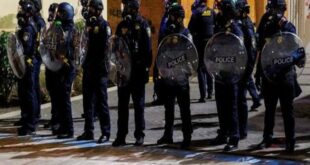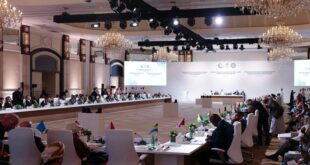
What about the surname of Ukraine’s president, Volodymyr Zelensky, or Zelenskyy, depending on which U.S. publication you’re reading? (The Post and the New York Times, among others, prefer the single “y,” while USA Today, the Associated Press and others go with “yy.”) To some people, I’ve read, the single-y spelling reflects a more Russian approach, with the double-y appearing more Ukrainian. One notes that the president of Ukraine’s Twitter handle is @ZelenskyyUa.
This column should have been a slam-dunk: a little copyeditorial erudition and explication, a few historical quotes for context and support, perhaps a digression into Bombay and Mumbai, or Burma and Myanmar, maybe a joke or two — how about a sly reference to the 1953 novelty pop hit “Istanbul (Not Constantinople)”? (“If you’ve a date in Constantinople / She’ll be waiting in Istanbul.”)
It should have been simple to say: Things (and people) change, including the names of things (and people), and innocuous-looking shifts in nomenclature can carry significant content, and one does well to keep up.
But then other things changed, too, and conflict turned into invasion turned into war turned into war crimes allegations turned into humanitarian cataclysm, and the potential jokes palled and I wondered whether it’s even worth the keystrokes to explain the imperialist smell of the simple article “the.”
I’m not a global sociopolitical expert (or an epidemiologist, as so many people are these days); I’m a copy editor. When I find Major Ideas bubbling up in my brain, I tend to reach for the delete key. When I stare at a photograph of four Ukrainian teenagers newly volunteered for combat, three of them wearing skaters’ kneepads and one carrying a yoga mat, I have no Major Ideas, just an inchoate, looming sense of despair.
So, quickly, then, before I lose my nerve and something even worse happens than has already happened:
Ukraine is an independent country and has been so since it declared itself free of the moldering, moribund Soviet Union in 1991 — more than 30 years ago, I underline. It is not “the Ukraine” — that is, not a province, not a territory, which is indeed the whiff given off by that “the,” as in, reaching back into history, “the Levant” or “the Crimea.”
“The ‘the’ is gone,” noted the Ukrainian Weekly (published out of Jersey City) in its issue of Dec. 8, 1991.
“It is just Ukraine,” diplomat William B. Taylor Jr. told Time in 2014 after President Barack Obama referred to “the situation in the Ukraine.” “It is incorrect to refer to ‘the Ukraine,’” Taylor went on, “even though a lot of people do it. … It kind of denies their independence, denies their sovereignty.”
Even as recently as late last month at the Screen Actors Guild Awards, the majestic Brian Cox, accepting an award on behalf of the ensemble of the series “Succession,” made mention of “what’s going on in the Ukraine” before, twice, hitting the standalone “Ukraine” loud and clear.
Look, it’s an easy stumble, and I’ve caught myself a number of times these past weeks. Perhaps you have, too.
But this ostensible sliver of a difference, this “the,” is, to borrow an idea attributed to, of all people, Vladimir Lenin, the difference between “who” and “whom”: who does and to whom it is done, who owns whom, or asserts that they do.
As to Kiev and Kyiv, that’s simpler: Kyiv is the appropriate transliteration of the Ukrainian name of the country’s capital, whereas Kiev is the name of the city in Russian. (An online campaign — KyivNotKiev — was started in 2018 by the Ukrainian Ministry of Foreign Affairs.) It doesn’t take a big thinker, I think, to understand why the Ukrainians would prefer the one over the other.
About chicken Kiev, a dish that was more than likely invented, a century or two ago, neither in Russia nor in Ukraine but in Paris, and that seems to exist mostly to squirt lava-hot butter onto your shirtfront: I’m not certain that renaming it chicken Kyiv, as the British supermarket chain Sainsbury’s has just done, makes a statement any more effective than “freedom fries” did in 2003 when someone was mad at the French, as someone always seems to be.
What about the surname of Ukraine’s president, Volodymyr Zelensky, or Zelenskyy, depending on which U.S. publication you’re reading? (The Post and the New York Times, among others, prefer the single “y,” while USA Today, the Associated Press and others go with “yy.”) To some people, I’ve read, the single-y spelling reflects a more Russian approach, with the double-y appearing more Ukrainian. One notes that the president of Ukraine’s Twitter handle is @ZelenskyyUa.
Those of us who follow publishers’ usages and standards at least as much as we set them out will continue to watch the Zelensky(y) matter with interest — and will be reminded that words, even “the” small ones, even their smallest components, can carry a big meaning.

World Opinions – washingtonpost




 World Opinion | Alternative Média زوايا ميادين | صوت من لا صوت له Débats De Société, Questions, Opinions et Tribunes.. La Voix Des Sans-Voix | Alternative Média
World Opinion | Alternative Média زوايا ميادين | صوت من لا صوت له Débats De Société, Questions, Opinions et Tribunes.. La Voix Des Sans-Voix | Alternative Média




